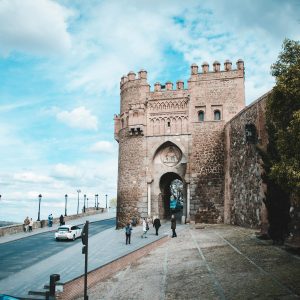Dismay, anger among young Nigerians after election outcome
Onitsha, Nigeria (AFP):
Just hours after Nigeria’s president-elect Bola Tinubu raised his hand in victory, Sam Nwajaku could not hide his anger.
“They cheated,” said the 38-year-old painter, seated at a kiosk in Onitsha, in southeastern Nigeria, a stronghold of opposition candidate Peter Obi.
“We see the same old politicians who have no interest in us.”
Nicknamed the “Godfather of Lagos” for his influence, Tinubu, 70, was elected on Wednesday as president of Africa’s most populous country after an election that had sparked hopes for change but ended in acrimony.
The result has exasperated some young Nigerians, tired of the ageing political elite who govern them. Nearly 40 percent of the electorate is aged under 35.
Many young voters were drawn to Peter Obi, the surprise third party challenger who eventually came third.
A former governor of his own home state of Anambra, Obi drew support from southern states.
He campaigned saying he was a candidate for all Nigerians, but especially many of the younger electorate disenchanted with politics as usual.
“We are upset, I really thought Peter Obi would be elected,” said Nikodemos Daniel, a 27-year-old motorcycle driver, also in Onitsha, in Anambra State.
Tinubu’s rise has been punctuated by numerous accusations of corruption, without him ever being convicted and which he has always denied.
On Saturday, many young people across the country had turned into ardent defenders of democracy remaining for hours, sometimes in the rain, to ensure vote transparency.
The Independent National Electoral Commission (INEC) said the February 25 election would be more transparent than past votes tainted by accusations of rigging and ballot-buying.
However, long delays in voting and slow delivery of the results upset many and stoked suspicions of fraud.
INEC said technical difficulties caused problems but insisted the vote was free.
“This time, we thought it would be different,” said Osaki Briggs, 25, a photographer from the southern state of Rivers.
He said the election was “depressing,” just like previous ones marred by accusations of fraud.
‘Sick man’
“Everyone expected an online transmission of results from polling units to portal… Only, after voting, we heard the portal crashed,” said Orison Omega, 23, an Abuja student.
“Which cannot be true. There could only be a hidden agenda.”
President Muhammudu Buhari, 80, leaves power in May after two terms, leaving Tinubu with mighty challenges ranging from a security crisis and widening poverty to a stagnant economy.
“How can a sick man who can’t stand on his own or make a speech (…) be declared the winner?” asked Jennifer Dike, 28, in reference to concerns over Tinubu’s health and age — worries his party dismisses as unfounded.
For her, Tinubu will not be the president who will “deliver” Nigeria from corruption, hunger or poverty.
“I’m so sad. No wonder young people are leaving the country in large numbers these days.”
For decades, Nigerians, rich and poor alike, have emigrated to other countries. But today, the desire to be elsewhere appears on the rise as Nigerians battle economic hardship, shortages of gasoline and even banknotes.
For the social media-connected youth of the south, Obi precisely embodied this desire for change and something better.
However, analysts doubted the ability of the candidate of the small Labour Party to amass votes beyond his stronghold and in particular in the Muslim majority north.
In Kano, the second city of the country located in the north, some celebrated Tinubu’s win.
Opposition parties may go to court to challenge the outcome.
But for now, life goes back to normal in Onitsha in Obi’s home state as elsewhere with Nigerians getting back to work.
“If he is a candidate, Peter Obi will win the next one,” said Chukwu Michael.













